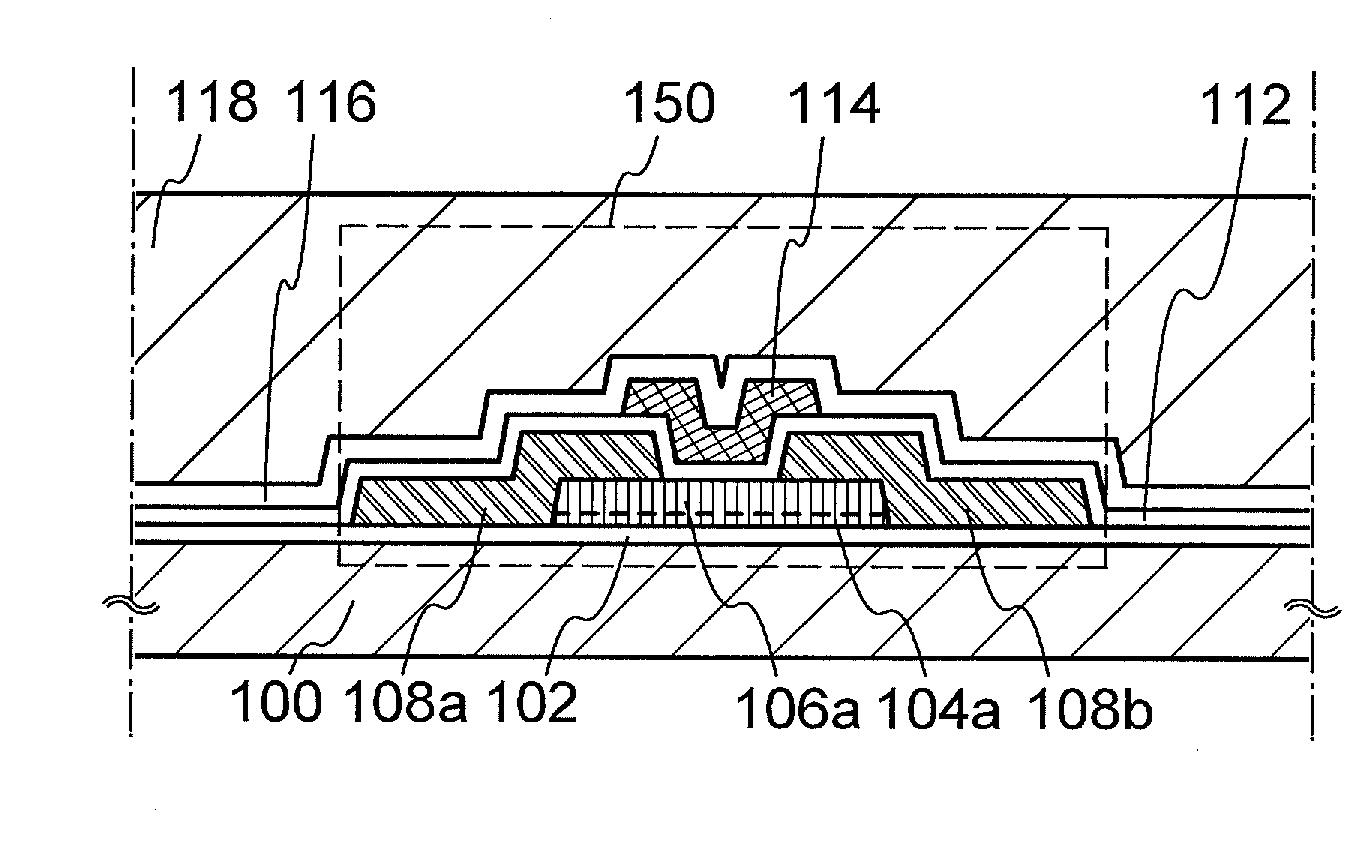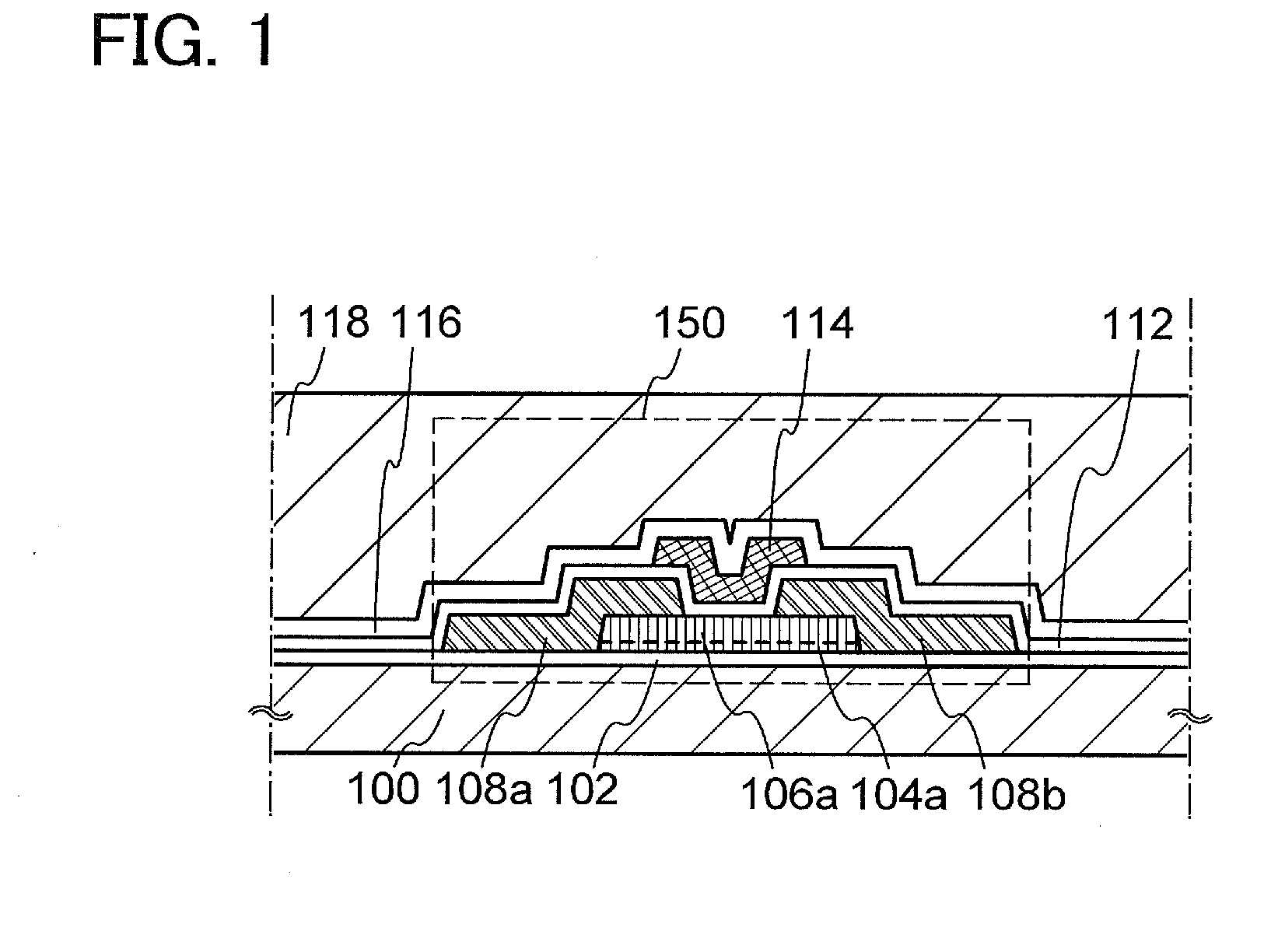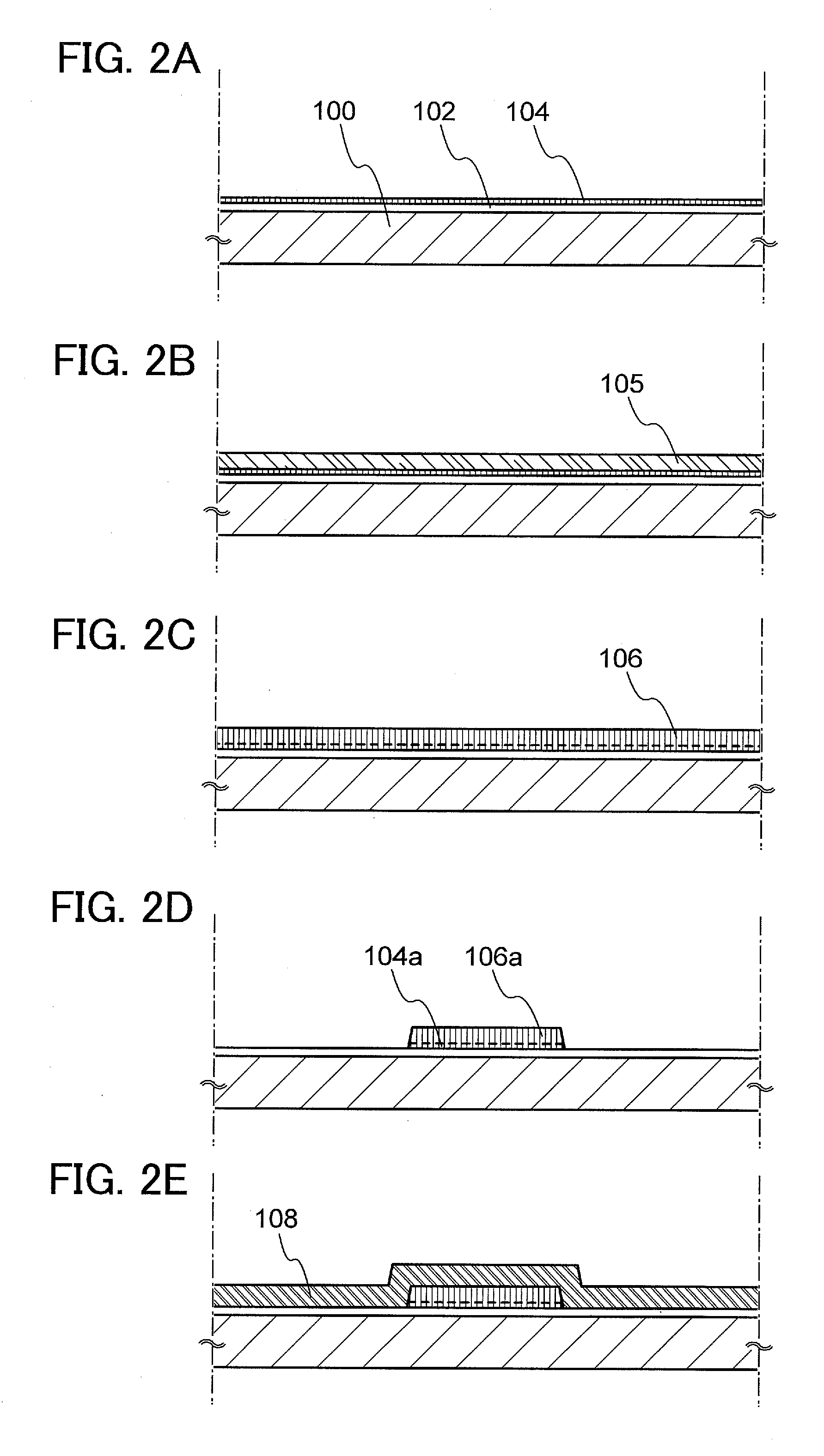Semiconductor device and manufacturing method thereof
a technology of semiconductor devices and semiconductors, applied in the direction of semiconductor devices, basic electric elements, electrical equipment, etc., can solve the problem of limiting the use of gate-insulated transistors including oxide semiconductors as driver elements of semiconductor devices, and achieve the effects of low electrical characteristics variation, high field-effect mobility, and low cos
- Summary
- Abstract
- Description
- Claims
- Application Information
AI Technical Summary
Benefits of technology
Problems solved by technology
Method used
Image
Examples
embodiment 1
In this embodiment, a structure and a manufacturing method of a semiconductor device according to one embodiment of the present invention will be described with reference to FIG. 1, FIGS. 2A to 2E, FIGS. 3A to 3D, and FIGS. 4A to 4E.
FIG. 1 is a cross-sectional view illustrating a top-gate transistor 150 which is an example of a structure of a semiconductor device. Note that although the transistor 150 described here is an n-channel gate-insulated transistor (also referred to as insulated gate field-effect transistor (IGFET)) whose carriers are electrons, the transistor 150 may be a p-channel gate-insulated transistor.
A method for manufacturing the transistor 150 will be described with reference to FIGS. 2A to 2E and FIGS. 3A to 3D.
First, an insulating layer 102 is formed over a substrate 100. Then, a first oxide semiconductor layer is formed over the insulating layer 102, and first heat treatment is performed to crystallize at least a region including a surface of the first oxide se...
embodiment 2
While an example of manufacturing a top-gate transistor is described in Embodiment 1, an example of manufacturing a bottom-gate transistor will be described in this embodiment.
First, a conductive film is formed over a substrate having an insulating surface, and then a gate electrode layer 401 is formed by a photolithography step using a photomask.
As a substrate 400, a substrate of a glass material such as aluminosilicate glass, aluminoborosilicate glass, or barium borosilicate glass, a silicon substrate, a quartz substrate, or the like is used.
In this embodiment, a glass substrate is used as the substrate 400, and heat treatment at 650° C. for 6 minutes is performed twice on the substrate 400 because heat treatment will be performed later for crystallization of an oxide semiconductor layer which is to be formed. By heating the substrate before the film formation, film peeling or misalignment of a photoresist mask due to shrink of the substrate can be suppressed.
An insulating layer s...
embodiment 3
In this embodiment, an example of a channel-protective transistor is described with reference to FIG. 6.
Since this embodiment is only partly different from Embodiment 2, detailed description is omitted here.
A process will be described below. Similarly to Embodiment 2, a gate electrode layer 501 and a gate insulating layer 502 are formed over a substrate 500. Then, similarly to Embodiment 2, a first oxide semiconductor layer is formed and subjected to first heat treatment to be crystallized; and a second oxide semiconductor layer is formed and subjected to second heat treatment to be crystallized.
Next, an oxide insulating layer is formed and third heat treatment is performed. The oxide insulating layer is formed using the same material as that of the oxide insulating layer 412 described in Embodiment 2. In addition, the conditions of the third heat treatment are the same as those of the third heat treatment described in Embodiment 2, and oxygen is supplied to the first oxide semicond...
PUM
 Login to View More
Login to View More Abstract
Description
Claims
Application Information
 Login to View More
Login to View More - R&D
- Intellectual Property
- Life Sciences
- Materials
- Tech Scout
- Unparalleled Data Quality
- Higher Quality Content
- 60% Fewer Hallucinations
Browse by: Latest US Patents, China's latest patents, Technical Efficacy Thesaurus, Application Domain, Technology Topic, Popular Technical Reports.
© 2025 PatSnap. All rights reserved.Legal|Privacy policy|Modern Slavery Act Transparency Statement|Sitemap|About US| Contact US: help@patsnap.com



